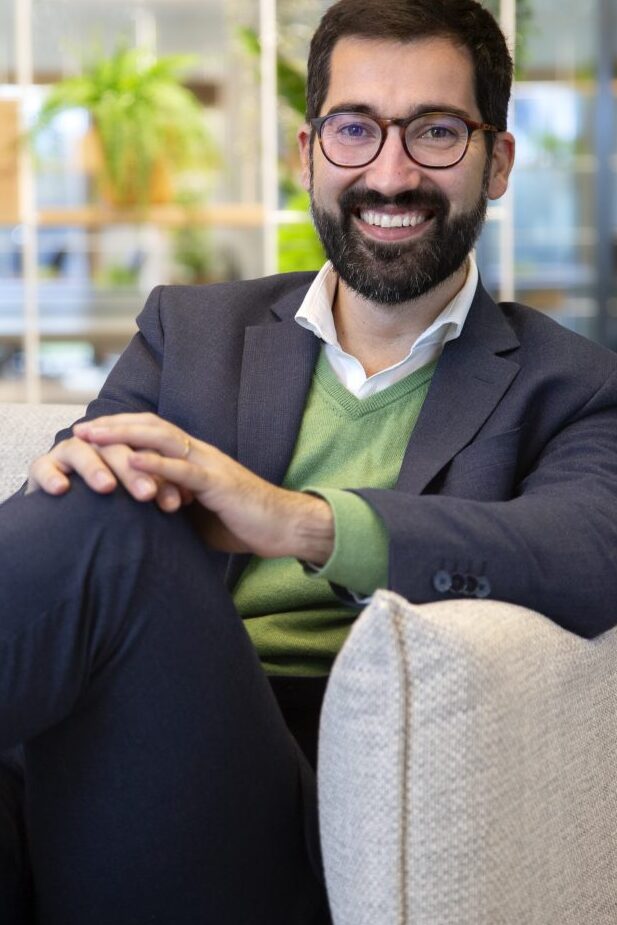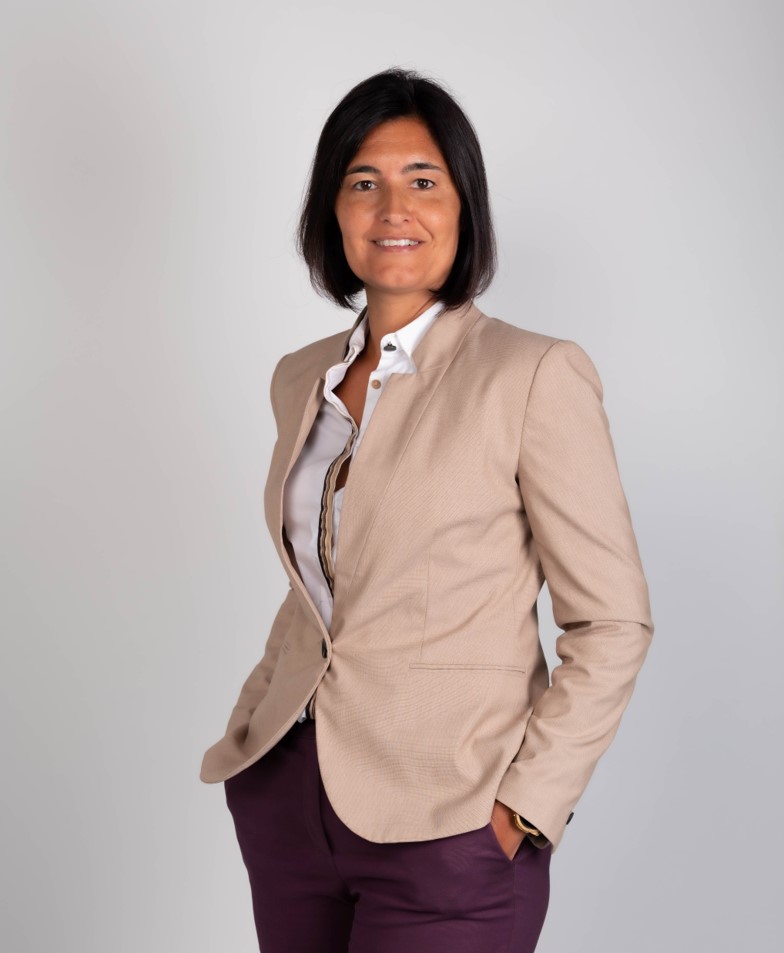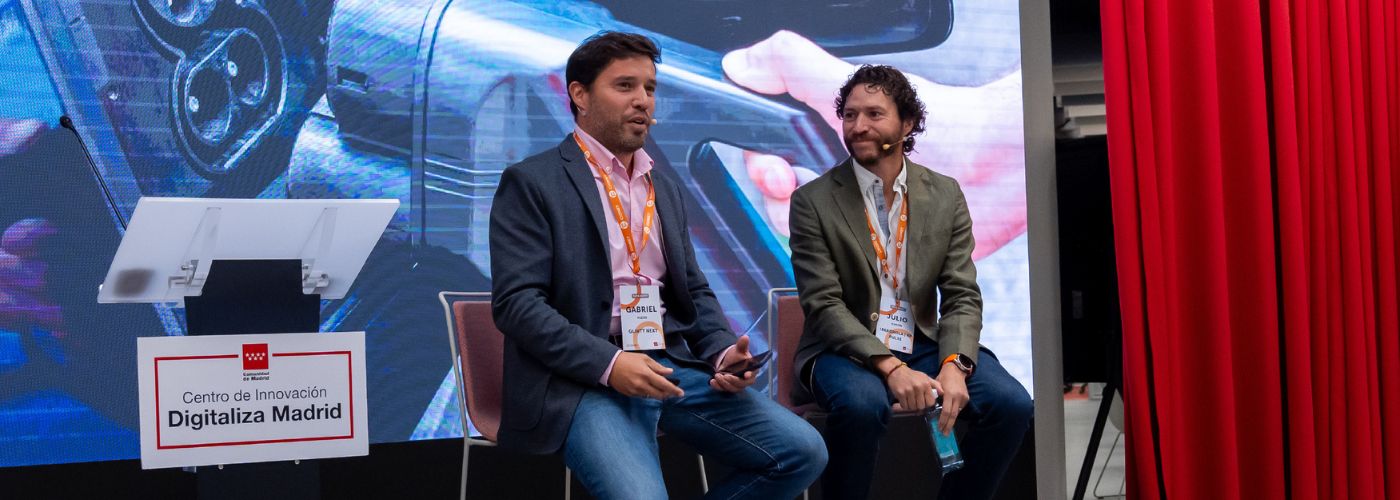Published on February 18, 2025, by Luísa Dâmaso | 66 Views
The digitalization of music licensing in Portugal has taken a decisive step forward with the new Audiogest platform, developed in partnership with Glintt Next. David Castro, Head of Low-Code at Glintt Global, and Sílvia Sá, Head of Licensing Service at Audiogest, explain how this innovative solution has simplified processes, increased efficiency, and ensured greater transparency in copyright management.
The impact was immediate, with reports of reduced response times, greater user autonomy, and results recognized at the Portugal Digital Award 2024. In this interview, the challenges and benefits of the solution are revealed, as well as the next steps to take this digital transformation to new heights.
What makes this technological solution pioneering?
David Castro – The solution developed for Audiogest marks a turning point in the digitalization of the music industry in Portugal. For the first time, the licensing process has been centralized on a fully digital platform, eliminating bureaucracy, reducing response times, and ensuring simpler and more efficient access for users.
This transformation has not only modernized copyright management but also brought a new level of transparency and automation to the sector.
The innovation of this solution lies in the combination of low-code technology, intelligent automation, and real-time data integration, enabling a flexible and scalable approach.
Additionally, the platform quickly evolved beyond initial licensing, incorporating tools for commercial teams, billing processes, and Business Intelligence integration. This comprehensive approach makes this solution a pioneering model that can be replicated in other cultural and industrial sectors.
Recognition with the Portugal Digital Award 2024 – Best Cultural and Media Project validates its innovation and impact.
How did this partnership with Audiogest come about?
D.C. – The partnership between Glintt Next and Audiogest was born out of the need to modernize and optimize licensing processes, ensuring growth, efficiency, and transparency.
The main technological requirements included:
-
- Usability and simplicity – An intuitive interface that facilitates licensing and reduces process complexity.
-
- Process automation – Eliminating manual tasks to increase efficiency and reduce errors.
-
- Integration with internal and external systems – Ensuring data consistency and facilitating information analysis.
-
- Continuous evolution – A flexible platform allowing for quick adaptations based on industry needs.
From the beginning, there was close collaboration between business and technology teams, ensuring that the solution was developed with cutting-edge technology while maintaining a deep understanding of the sector’s needs.

The use of low-code technology, via the OutSystems platform, was crucial for ensuring fast, efficient, and adaptable execution.
How did you ensure an efficient implementation with a direct impact on operations?
D.C. – The efficient implementation of the platform was ensured through three fundamental pillars: collaboration, continuous monitoring, and iterative evolution.
Collaboration between technology and business teams was key. From the start, there was close involvement between Audiogest and Glintt Next, ensuring that the technology was developed to meet the real needs of the organization. It was not just about creating software but about transforming processes.
The platform was integrated with Business Intelligence tools, providing clear visibility into operational efficiency and identifying areas for real-time improvement.
We adopted a continuous improvement approach, rolling out features gradually and adjusting them based on user feedback. The commitment to the “fail fast, fix fast” philosophy ensured that necessary adjustments could be made without compromising operations.
The direct impact translated into increased process efficiency, improved customer experience, and greater adaptability to market demands.
How was the digital transformation process, and what role did internal teams play in its implementation?
Sílvia Sá – Digital transformation was a fundamental step in modernizing Audiogest, covering not only licensing but also prospecting, acquisition, and collection, as well as a range of interactions and operations between Audiogest and its members and representatives, who are ultimately the final beneficiaries of our activities.
Technology is only effective when aligned with the knowledge and experience of people.
From the outset, we encouraged a culture of involvement and adaptation, enabling teams to quickly understand the benefits of the new platform.
The attractive and intuitive interfaces, along with the speed of implementation enabled by the technology used, combined with highly skilled technical teams deeply involved in our business, significantly contributed to the team’s acceptance of change at Audiogest.
This led to the success of the project, because technology alone does not solve challenges without a strategic and value-driven approach.

We want to evolve so that users can manage their licenses more and more autonomously, while continuing to improve the customer experience and response times.
What feedback have you received from artists and music producers about this new platform?
S.S. – The feedback has been extremely positive. Licensing and copyright collection have always been seen as bureaucratic and complex processes, and our initiative has brought greater transparency and efficiency to this ecosystem.
Digital transformation has extended across Audiogest’s entire service structure, including rights distribution and support for members, allowing all beneficiaries to receive potentially increased royalties, as well as access to more and better information about our services and how their rights are generated, used, and distributed.
Producers within our network of members have noticed the improvements, and all have responded very positively.
The solution has already been recognized with the Portugal Digital Award 2024. How do you evaluate this recognition, and what other distinctions do you hope to achieve?
S.S. – The recognition as “Best Digital Transformation Project in the Culture and Media Sector” is a milestone for all teams involved.
This award highlights not only technological innovation but also the positive impact on music rights management.
It is important to note that efficiency in management, leading to cost savings and reallocating workers to other tasks, will ultimately reduce the management commission charged to rights holders, which in turn will result in higher amounts distributed to them.
Additionally, this distinction opens doors for replicating the project in other markets and further solidifies its relevance in the sector.
What future plans do you have for expanding or improving this solution?
S.S. – Our goal is to continue simplifying licensing management, especially for sectors that frequently use music, such as Hospitality, Restaurants, and Tourism.
We want to enhance users’ ability to autonomously manage their licenses, while continuously improving customer experience and response times.
We will also use technology to provide increasingly customized information tailored to different industries, raising awareness among entrepreneurs and the general public about the importance of licensing compliance and its impact on the music publishing industry.
Additionally, we are focusing on rights distribution, investing in technology that implements fair and economically viable criteria that better reflect real music usage.
With Artificial Intelligence emerging as a powerful tool and a significant challenge, we will also empower artists, producers, and professionals with the knowledge needed to adapt to transformations and ensure the recognition of intellectual creation.
Technology will always be an essential ally, as long as it is used purposefully, respecting the rights of all stakeholders, and contributing to a stronger and more sustainable music industry.
Does Glintt Next have plans to replicate this solution in other cultural areas or business sectors? If so, what is the timeline?
D.C. – Yes, this digitalization and automation model has great potential to be replicated in other cultural and business sectors.
In 2025, we plan to explore opportunities to adapt and implement this solution in other sectors, bringing innovation to new areas of business.
Source: Ntech.new


